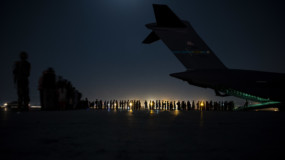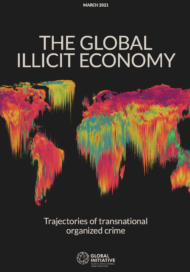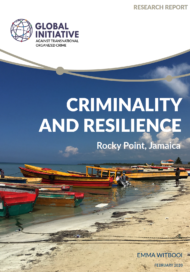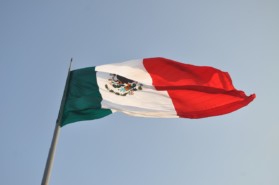Posted on 31 Aug 2021
The major earthquake that struck Haiti on 14 August has devasted communities already struggling to cope with the socio-economic fallout of the coronavirus pandemic.
According to a 27 August UNICEF report, the earthquake has killed at least 2 200 people and injured 12 200, as well as destroying countless schools, homes and hospitals. The earthquake has also presented an opportunity to organized criminals: gangs have hijacked aid trucks and stolen crucial supplies, while one gang leader has offered a truce and help to communities – an approach that may be cynically calculated to increase the gang’s legitimacy among the local population.
Organized crime is firmly entrenched in Haiti, with an estimated 3 000 armed actors (spread across more than 200 armed groups) controlling nearly 30% of the country’s population. In recent years, these groups have driven an increase in criminal activity in the country, including sexual exploitation (mostly targeting women and girls), trafficking in minors, kidnapping and arms trafficking.
Many Haitians live under the constant threat of being killed by armed criminals or falling victim to other unlawful behaviour. The phrase ‘Life expectancy here in Haiti is conditionally renewable every 24 hours’ is much-repeated among Haitians. ‘You never know when you are going to be kidnapped, gunned down, raped or face a life-threatening medical emergency that you can’t respond to because the roads are unsafe.’
Since 2018, there have been 13 massacres, three of which are being investigated further by Harvard Law School’s International Human Rights Clinic and the Observatoire Haïtien des Crimes contre l’Humanité for potential crimes against humanity. In June 2021, there were several mass killings in gang-controlled low-income communities and conflicts among armed actors that have left more than 20 000 people displaced and nearly 1.5 million directly affected. That same month, 19 people were gunned down in three middle-class neighbourhoods in Port-au-Prince, including a well-known journalist and an outspoken political activist. Haiti’s most trusted newspaper, Le Nouvelliste, published graphic pictures of nine of the victims to highlight the severity of the violence. Defending the controversial decision, the newspaper said: ‘Sometimes, words are in mourning. The photos speak.’
The country’s supply chains have also been disrupted by heavily armed criminal actors patrolling the highway leading to the southern peninsula, which comprises four of out of Haiti’s 10 provinces. During the pandemic, fuel shortages have threatened to shut down facilities that provide care for COVID-19 patients. Meanwhile, the looting of warehouses by armed gangs is raising the cost of basic commodities in a country where 4.4 million people – nearly 40% of the population – already face hunger.
Responding to sexual exploitation and trafficking
Rapha International has partnered with the Global Initiative Against Transnational Organized Crime and its Resilience Fund to launch projects in Haiti to support women and girls who have suffered sexual exploitation or trafficking before being violently driven out of their communities, often leaving all their possessions behind.
These efforts are not only meeting the short-term needs of survivors, but are also seeking to break the cycle of exploitation and inequality that has gripped marginalized communities for decades. The projects assist trauma survivors with psychosocial and medical care, relocate displaced families, promote economic opportunities among female heads of households and seek to establish positive social norms within these gang-affected neighbourhoods.
Thirty women, heads of households and members of displaced families are receiving income-enhancement support to alleviate the underlying socio-economic vulnerability that would lead to further exploitation. As a result of this support, small businesses are being created to provide a sustainable source of income for these families to meet their basic needs. An estimated 150 people are receiving the benefits of this income-enhancement initiative directly or indirectly.
Medical services provided to 30 young adolescent girls, all of whom are survivors of sexual exploitation and trafficking, have been instrumental in addressing sexually transmitted diseases and women’s health issues among the victims. These adolescent girls are also building enhanced trauma-coping mechanisms through psychosocial services. Meanwhile, community members and leaders have received training on building social norms that deter violence against girls and women and the recruiting of children into organized crime groups.
Help or find out more
Rapha is committed to supporting women and girls, and to strengthening communities, as Haiti responds to the devastating damage of the earthquake, including in mitigating criminal groups’ attempts to exploit the post-earthquake situation.
Contact the local team by emailing freedom@rapha.org or visit www.rapha.org.
You can find out more about the Resilience Fund at resiliencefund.globalinitiative.net, or contact secreteriat@globalinitiative.net.
© Courtesy of Rapha Haiti



